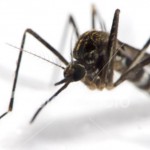 New year, new threat. A virus suspected of triggering fetal brain damage is likely to spread further in 2016.
New year, new threat. A virus suspected of triggering fetal brain damage is likely to spread further in 2016.
Zika virus was discovered in the Zika forest in Uganda in 1947. For the next 50 years, the virus, which is carried by mosquitoes, caused small, sporadic outbreaks in parts of Africa and South-East Asia.
In the last 10 years, there have been outbreaks on many Pacific islands – it infected 75 per cent of the population on the island of Yap in 2007, for example. In May last year, it made landfall in Brazil and has since spread to nine more countries, as far north as Mexico.
Zika is spreading so fast that health agencies are ramping up resources to track and contain it. “Detecting circulation of the virus in new geographic areas is most important, to strengthen the responses of health services and step up surveillance for serious cases or complications,” says Sylvain Aldighieri of the Pan American Health Organization and World Health Organization’s regional office for the Americas.
Is it Zika?
As well as learning more about the virus and the illness it causes, anti-Zika programmes for 2016 include measures to reduce mosquito breeding sites and increase the capacity of labs to detect the virus quickly.
There have been a few cases in Europe and the US when visitors to infected countries have returned with the virus.
“Clinicians need to be aware that this virus is rampant in South America, so it should be in their minds when they see possible cases,” says Abraham Goorhuis of the Center for Tropical and Travel Medicine at the University of Amsterdam, the Netherlands, who diagnosed three people returning from Suriname in December. “It’s probably being under-diagnosed.”
Although the virus causes a painful but temporary rash in adults, it is seldom lethal, but it may cause brain damage in unborn children. In Brazil and French Polynesia, brain defects increased dramatically wherever the virus emerged. “The link is not proven yet, but it’s a cause for concern,” says Goorhuis, adding that pregnant women need to take all possible steps to avoid being bitten by mosquitoes if they visit infected countries.
Clinicians are still debating whether people infected with Zika attending the 2014 World Cup brought the virus to Brazil. If they were bitten by mosquitos, they could have seeded the current South American outbreak. Another theory from researchers in French Polynesia is that the virus arrived in Rio de Janeiro during a canoeing competition in August 2014.
Source: New Scientist

















